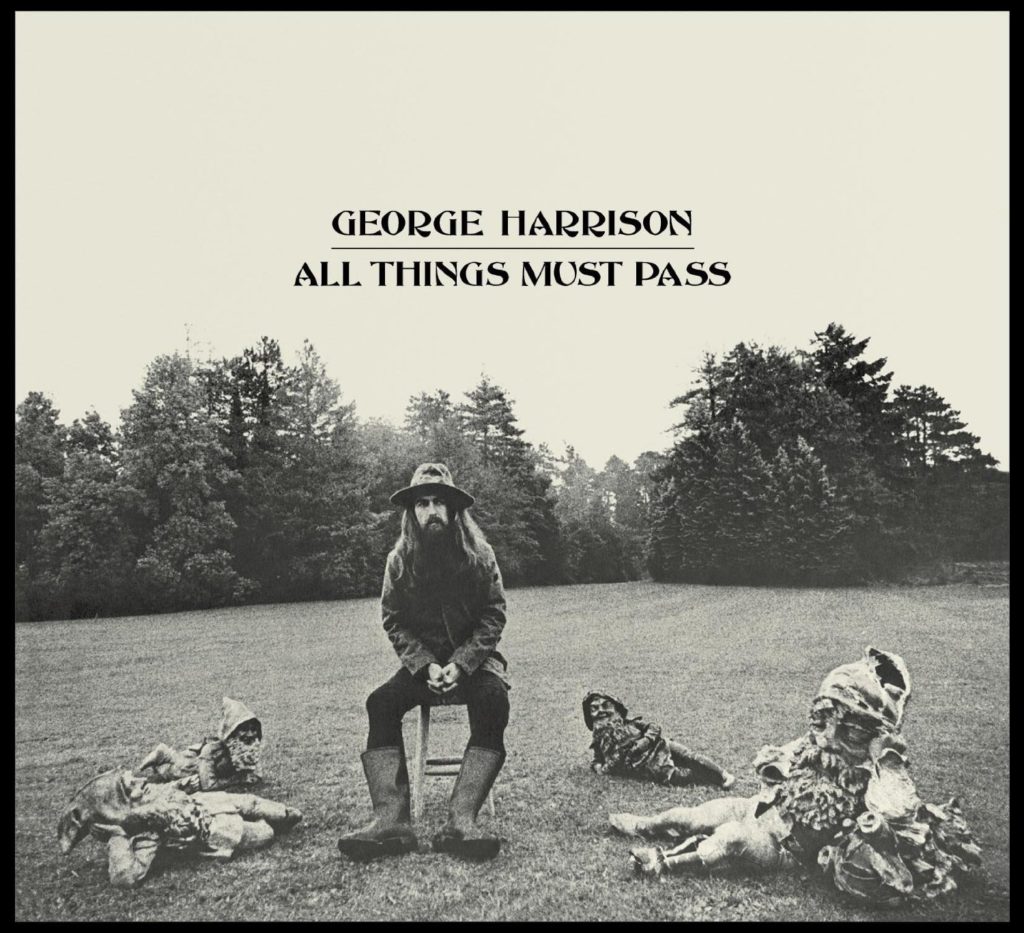 Well over a half century after its November 27, 1970, release, All Things Must Pass remains a conundrum, alternately exhilarating and exhausting. Epic in ambition and triumphant in its success, George Harrison’s triple album surprised fans with its religious subtext and sonic maximalism, executed with a battalion of studio guests marshaled by Harrison and co-producer Phil Spector. Released in 1970 as the Beatles officially split and all four dropped solo albums, Harrison’s mammoth boxed set was a dark horse: Against expectations, the “quiet Beatle” spoke the loudest at the cash register, banking the highest sales of any of his former bandmates’ solo projects.
Well over a half century after its November 27, 1970, release, All Things Must Pass remains a conundrum, alternately exhilarating and exhausting. Epic in ambition and triumphant in its success, George Harrison’s triple album surprised fans with its religious subtext and sonic maximalism, executed with a battalion of studio guests marshaled by Harrison and co-producer Phil Spector. Released in 1970 as the Beatles officially split and all four dropped solo albums, Harrison’s mammoth boxed set was a dark horse: Against expectations, the “quiet Beatle” spoke the loudest at the cash register, banking the highest sales of any of his former bandmates’ solo projects.
Its best songs still charm through Harrison’s transparent sincerity and craftsmanship, yet the frequent all-hands-on-deck ensemble assault nearly drowns out the front man. Not unlike his old band’s eponymous “white” album, All Things Must Pass invites critical listeners regarding its sprawling track list to wonder whether less might have been more.
Listen to an early take of “Awaiting on You All,” an album track on All Things Must Pass
Related: All Things Must Pass received a 50th anniversary edition in 2021
If Lennon and McCartney were alpha Beatles, Harrison spent his early years with the band honing his skills as a guitarist. Even after A Hard Day’s Night established the Beatles as a self-contained group, Harrison’s songwriting output was modest, constrained initially by his own reticence and then by Lennon and McCartney’s more prolific pace and de facto lock on single releases. Two B-sides were the lead guitarist’s only seven-inch features, until the ravishing 1969 A-side of “Something” confirmed the beta Beatle was more than capable of crafting songs every bit as enduring as Lennon and McCartney’s.
Where his partners wrote and sang about matters of the heart, Harrison wrote about matters of the spirit. His fascination with Indian music, already audible in Revolver‘s “Love You To” and “Within You, Without You” on Sgt. Pepper, had led him into Hindu mysticism, a passion that afforded tabloid fodder during the Beatles’ flirtation with Maharishi Mahesh Yogi. What proved fleeting for the other three proved more lasting for Harrison. Eight of the 17 songs that comprise the first two LPs in the boxed set were explicit in their religious fervor, including what Spector insisted was the most commercial candidate for the lead single, “My Sweet Lord.”
Harrison was skeptical that his hymn to a Hindu god could be a breakout hit, but fans swiftly ratified Spector’s conviction: Topping charts in the U.S., the U.K. and across Europe, it became the first #1 solo single for any Beatle. Against a scrum of acoustic guitars, Harrison croons his praise, punctuating his lyrics with gleaming slide guitar figures. Behind him, a backing choir’s “Hallelujah” transforms into a “Hare Krishna” chant that should have passed its sell-by date decades ago, yet still invites smiles. Older pop fans can derive an unintended irony in the song’s resemblance to the Chiffons’ 1963 hit, “He’s So Fine,” for which Harrison was successfully sued for “subconscious plagiarism” by publishers for its Brill Building songwriter, Mack Rice—a plausible connection, given the Beatles’ own contemporaneous Brill Building and early Motown covers.
Harrison’s slide guitar signature offered an aural clue to Harrison’s outside influences. His attraction to stateside R&B had prompted him to sign and produce Billy Preston and Doris Troy for the Beatles’ newly harvested Apple imprint. More crucially, he was drawn to the earthy fellowship of The Band, a passion shared with close friend Eric Clapton that influenced their decision to join a 1969 European tour for Delaney & Bonnie and Friends. It was Delaney Bramlett who urged Harrison to polish his slide technique, which he refined beyond its usual country blues axis into a sleeker, more melodic touch. The brief busman’s holiday with the Bramletts in turn led to recruitment of Clapton and all five of the musicians in the Friends band for the All Things Must Pass sessions.
Related: Our Album Rewind of Delaney & Bonnie’s Accept No Substitute
Joining them was a murderer’s row of rockers including Ringo Starr, Dave Mason, Gary Wright, Gary Brooker, Alan White, Klaus Voormann, Pete Drake and all four members of Badfinger, as well as Billy Preston and at least two uncredited future stars, Peter Frampton and Phil Collins. At least two dozen musicians would contribute, with as many as 15 playing live on basic tracks.
Many arrangements embraced Spector’s “Wall of Sound” ethos, combining multiple drummers, massed guitars and keyboards, and backing choruses into sonic juggernauts, heard through canyons of echo. At its most unbridled, the approach overwhelms with blunt force, most glaringly on “Wah Wah,” a blitzkrieg of jangling guitars, thundering drums, blaring horns, and chanted vocal choruses that surely pinned the needles into the red on the recording console. The final mix is so instrumentally dense as to verge on distortion; Harrison himself was reportedly conflicted in his initial reactions to that track, the first recorded for the project.
Elsewhere, the symphonic weight attainable through force of numbers is managed more effectively. “What is Life” harnesses its orchestral firepower more elegantly, pulling back on the verses to let its lead vocals breathe before adding horn and choral fanfares to punch up its joyous choruses. “Awaiting on You All” shares the same balance of uptempo energy while delving more directly into its religious subtext.
Harrison’s forthright meditations include three portentous songs, risky in the context of a secular rock record, that he manages to pull off with subdued arrangements. “Isn’t it a Pity,” a stately inventory of human failure, is the album’s longest vocal track at over seven minutes, reprised in a second version later in the set.
Restraint likewise frames “Beware of Darkness,” a minor-keyed warning against lost dreams and encroaching demons.
Beyond the lamentation of “Isn’t It a Pity” and the threat of “Beware of Darkness” lies the reflective acceptance of the title track, the least doctrinaire and most durable of the three. Had Harrison not chosen to stretch beyond two LPs of songs to add a third disc of instrumental jams, “All Things Must Pass” would have gained added impact as the album’s final statement.
Joining the Maharishi, Phil Spector and the ur-Americana of The Band and the Bramletts as influences here is no less an icon than Bob Dylan, whom Harrison had bonded with during a visit to Woodstock.
The collaboration between the future Wilburys yielded two co-writes that represent the two most straightforward love songs on All Things Must Pass, the album opener, “I’d Have You Anytime,” and “If Not For You,” which Dylan himself would also record for his New Morning album.
George Harrison’s overall success with All Things Must Pass surely drew from confidence gained in producing two earlier instrumental albums, while his eagerness to collaborate outside the Beatles’ rarefied fellowship translated to the scale and party atmosphere of the project’s sessions. That he recognized its importance as his first solo statement as singer, songwriter and producer prompted his involvement in a remastered and expanded version completed a year before his death. In that context, the instrumental jams that comprise the original third LP are worthwhile mementos of those fateful sessions, yet it’s fair to admit that at the time of its original release only a minority of fans spent as much time spinning those loose workouts as the more coherent songs on the first two discs.
Bonus: Listen to Harrison and Leon Russell perform “Beware of Darkness” live at the Concert for Bangla Desh
The album’s 50th anniversary editions are available in the U.S. here and in the U.K. here. A 2024 expanded edition of Harrison’s Living in the Material World is available here.


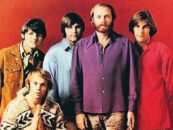
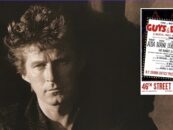
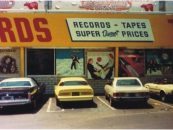
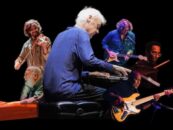

6 Comments so far
Jump into a conversationWW!! So glad to see this fandamntastic album receiving its righteous due..50 Years On!!
I was ecstatic to receive this as a Christmas gift from a good friend, and have ALWAYS REVERED IT SINCE!! The Concert for Bangladesh being the icing on the cake!! Always loved George’s music throughout the s Beatles era, and SO DISAPPOINTED TO KNOW that Lennon/McCartney WOULD NOT LET SEVERAL OF THESE FINE CUTS BE INCLUDED ON THEIR LAST ALBUMS!! But with THIS, George well established himself as the stellar singer-songwriter that he had ALWAYS been!! And with that, I say: H A L L E L U J A H !!!! ❤️❤️❤️!! RP George..and, as John once famously said….”You always have the records!” INDEED WE DO….P L A Y O N !! Always and forever!
I have never compared any of the BEATLES
to another,yet with that being said
George Harrison has always seemed to me
the most Beatleful of the Beatles.
And as far as that goes,this wonderful
sprawling release from him has always
felt to me as comfortable as your
favorite chair.Ageless, while still
locked in time.The aura of the
supporting cast and the atmosphere
resulting,is captured here forever.
The magic doesn’t fade away.
Bought the cd`s set where George re-recorded My Sweet Lord. Listen to Apple Jam once. Would have been a stronger album if George cut off about 7 or 8 songs.Some of the songs would not be strong enough for a Beatles album, too slow and dreary and over produced.. Quantity doesn’t equal quality.. Personally not my favorite ex-Beatles record.
You need a few facts checked. The album did outsell the other albums but Paul’s was a #1 and did quite well. Also, Band on the run would eventually outsell this George album by a good margin, nearly 3/4s of a million units beyond George’s album. George got credit for selling 2 LPs but it was a box set.
George always had 2 spots available on a Beatles album. Some of his songs were simply unfinished including All Things Must Pass. While presented and worked on by the Beatles it was left unfinished for another time and George put it on this album.
1970, 16 years old, and first “real” job (paper route, gopher, etc. were prior).
Guess what I bought with my first “real” paycheck?
Spoiler Alert – It has a relationship to this wonderfully written article.
Best $14.99 I ever spent, even though I thought it was a king’s ransom, in 1970.
Still have the original box set, In pristine condition, with liner pages, poster, and sleeves.
Of course, the vinyl has seen it’s share of spins.
An interesting album for sure. What has amazed me is how overlooked “Art of Dying” has become. It is one of the most powerful songs he ever wrote and most people (including Beatles fans) have never heard it. The radio never plays it and he didn’t perform it live very often. Just a scorching gem that rarely gets seen. Maybe it’s just too deep for the masses. Keep UP the great work.